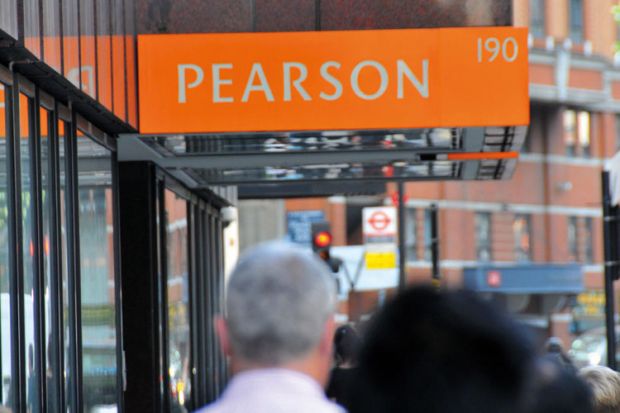The government has stripped a number of private colleges of the right to access public funding and has enlisted education firm Pearson to help find new institutions for students who need to transfer as a result.
Pearson, the firm that awards the sub-degree BTEC Higher National qualifications used by most of the fastest-growing for-profits, is said to have approached other private providers asking them whether they wish to offer HN courses to the students affected. The FTSE 100 company, which is paid by colleges for each HN student recruited, is said to have told providers there could be anywhere between a few hundred and 6,000 displaced students seeking new courses in London alone.
According to government figures, support for students at private colleges is projected to hit £900 million in 2014-15 – up 2,100 per cent since 2010-11. With the National Audit Office investigating the funding controls after scandals affecting some for-profits, the Department for Business, Innovation and Skills is under pressure to act.
BIS would not confirm how many or which private colleges have lost designation – the status needed for students to claim funding from the public-backed Student Loans Company.
But two of the fastest-growing private operators, St Patrick’s International College and the London School of Business and Finance, are among those yet to have received a decision from the government on funding for the coming academic year, although there is no suggestion that the colleges’ funding is at risk.
The colleges, both part of the same for-profit group, Global University Systems, are the two biggest HN student recruiters.
In just one year, 2012-13, St Patrick’s went from having no HN students with public-backed loans to more than 4,000 – giving it more SLC funding than the London School of Economics.
Established private providers such as BPP University and Regent’s University London have already been granted their designations, according to the Higher Education Funding Council for England’s website.
Tommie Anderson-Jaquest, dean of quality and standards at St Patrick’s, said: “The college currently has designation and is confident that it will be renewed.
“It has only recently responded to routine BIS requests for further information, which probably explains the delay.”
An LSBF spokesman also said it was “confident that our existing designation will be renewed”.
He added: “We have been cooperating with BIS and have responded to its routine requests for information.”
A BIS spokesman said: “Our focus is always on ensuring the highest standards for students, and we will fail providers if they do not meet these expectations.
“Some institutions have already been notified that their applications for the 2014-15 academic year have been rejected.”
He added: “No person need be without a place, so we are taking steps with Pearson to support them, should they require it.”
A Pearson spokeswoman said it had been asked by BIS “to help with a contingency plan for prospective students who are planning to start studying their chosen course this next academic year, but may not be able to do so if their chosen provider does not obtain designation”.
She added: “The designation process is ongoing, so we don’t yet know if any students will be affected.”
Register to continue
Why register?
- Registration is free and only takes a moment
- Once registered, you can read 3 articles a month
- Sign up for our newsletter
Subscribe
Or subscribe for unlimited access to:
- Unlimited access to news, views, insights & reviews
- Digital editions
- Digital access to THE’s university and college rankings analysis
Already registered or a current subscriber? Login





